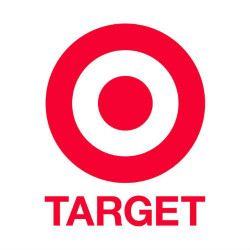Top Class Actions’s website and social media posts use affiliate links. If you make a purchase using such links, we may receive a commission, but it will not result in any additional charges to you. Please review our Affiliate Link Disclosure for more information.

Plaintiff James Walters claims that Target deceptively presents its RedCard payment method as an analog to traditional debit cards, when in fact using the card exposes consumers to vastly more expensive penalties and fewer legal protections.
According to the Target class action lawsuit, Target’s RedCard is a house-brand payment method that the retailer offers customers.
Using a RedCard to pay for a Target purchase initiates an electronic transfer of funds from the customer’s associated bank account. In exchange for using the RedCard, Target offers customers a five percent discount on all Target purchases made with the card.
Walters says that Target exploits consumers’ ideas of how debit cards work to get them to use the Target RedCard – which Walters says doesn’t work like traditional debit card at all.
According to the class action lawsuit, Target tells customers that funds for purchases made with a RedCard are immediately and directly withdrawn from the customer’s checking account.
Target also requires customers to pick a unique Personal Identification Number for use with the card. Walters argues that these aspects of the RedCard deceptively encourage customers to think it works like a debit card.
The problem, according to Walters, is that RedCard transactions don’t work like debit card transactions at all. He says that purchases made with a RedCard function are processed over the Automated Clearing House network.
These ACH transactions function more like electronic checks, Walters says. They do not immediately draw funds from the payer’s bank account, causing a delay that he says consumers aren’t expecting.
In addition to the delay inherent in ACH transactions, Walters says Target intentionally delays processing RedCard transactions.
He alleges that to save money on processing fees, Target submits RedCard transactions to the ACH network in massive batches. This batch processing can add several days to the time it takes a single transaction to post to the customer’s account, Walters claims.
This delay increases the chance that a customer’s checking account may become overdrawn by the time the Target transaction posts, Walters says.
Like banks, Target charges its RedCard customers a fee if the transaction is refused. But unlike bank fees, which are regulated by federal law, these Returned Payment Fees are unrestricted.
Walters claims that a single declined RedCard transaction can rack up compounded RPF charges of $100 or more.
In addition to the RPFs, Walters says the customer’s bank may also charge an NSF fee for the declined transaction. Walters adds that while Target’s card agreement warns customers about the possibility of being assessed “overdraft fees,” it makes no mention of the danger of NSF fees.
Walters quotes several customer complaints from Internet forums showing that many who signed-up for and used the RedCard had the mistaken impression – allegedly based on Target’s representations – that the card would work just like a debit card.
Some of these customers say this alleged misrepresentation resulted in their being hit with RPF charges they weren’t expecting.
If certified by the Court, Walters’s proposed Class will include all U.S. consumers who incurred RPF charges by using their Target RedCard within the applicable statute of limitations period.
The plaintiff is asking the court to award damages and restitution of all charges Target has assessed its customers as a result of its alleged deceptive business practices, plus costs and attorneys’ fees.
Walters is represented by attorneys Jeffrey Kaliel of Tycko & Zavareei LLP; and Jeffrey Ostrow and Scott Edelsberg of Kopelowitz Ostrow Ferguson Weiselberg Gilbert.
The Target RedCard Class Action Lawsuit is James Walters v. Target Corp., Case No. 16-cv-1678, in the U.S. District Court for the Southern District of California.
UPDATE: On June 19, 2019, Target debit card holders reached a $8.2 million class action settlement which would end claims that Target deceptively markets its store debit card.
ATTORNEY ADVERTISING
Top Class Actions is a Proud Member of the American Bar Association
LEGAL INFORMATION IS NOT LEGAL ADVICE
Top Class Actions Legal Statement
©2008 – 2024 Top Class Actions® LLC
Various Trademarks held by their respective owners
This website is not intended for viewing or usage by European Union citizens.















100 thoughts onTarget Class Action Says RedCard is Deceptively Marketed
How do I become part of this.
Not to mention when you return something they put it back through the red card and you never get yoyr funds back . I still have proof !!
I don’t know how you didn’t get your funds back when you returned an item from target but I get all my refunds right back in the checking account linked to my terget red card. They do need to change how the target red card works and make it work like a debit card not a check however the consumer needs to be aware of how much monies they can spend and not spend the monies they just spent at target. It’s consumers fault for using their target red card and not having enough monies in their account in the first place and or getting cash back when they never had enough monies in their account in the first place. Omg consumers always find a way to blame someone else for their inability to manage their own money by a class action suit!
Nobody is talking about not having money in their account is just target has a way of taking up to 10 days to take your money out, they don’t even put a hold it’s just crazy n who uses a balanced book in 2016?
How can I be part of this lawsuit?
i had not been in a target for a long time. upon my visit they had me sign up for a credit card. on my return visit with my paper i was issued on the day i applied it would not work. it was not out of date as this was the last day i could use it and had not received my card in the mail. they wanted me to pay cash or use another card as my card was in the mail. i tried talking to their call center??? much to be desired there. they were limited to answers and when i said i wanted to talk to the issuing bank they said it was citi BIG LIE. i insisted they cancel my card. next day i called the issuing bank who does nothing but allow target to use their name. i was able to get the card canceled. i have no use for target
It is NOT Targets fault if the consumer does not maintain a check register & deduct the amt from their acct, if u get an overdraft because of this then its your fault not theirs, for some issues consumers need to take responsibility & stop with the blame game. On the flip side of this issue, they do need to make it work like a debit card that deducts it immediately & pends the amt charged from your account balance but…until that happens you know u charged the amt so deduct it yourself, it doesnt take a rocket scientist.
Perfectly said!! I have a Target Red Card and I just deduct it from my from the money that is there. Not hard!!
That’s is correct had they informed the consumer it’s not like an actual debit card! It’s like writing a check.
Exactly!
AMEN!!!!!!!!!
Exactly what I am thinking!!!!!
Could not agree more. Yes there is some degree of personal responsibility required but they should also be required to advertise it correctly. It took them 8 days to take money out of my account. When we were buying a house we had hundreds of transactions in a month. I assumed (wrong) that the money had already come out because we hadn’t used the card in a week. I wrote a check for closing costs and ended up with an overdraft from Target coming out 8 days later.
I’ve also had this issue and need to be part of this class action.
I have had this problem, how do we join the lawsuit?
This is exactly why I never got one. I heard from friends that it would take days to withdraw from their accounts. I always tell the cashiers, once you get it to work like a real debit card, I might consider it.
How do I become a part of this
How to become part of this.